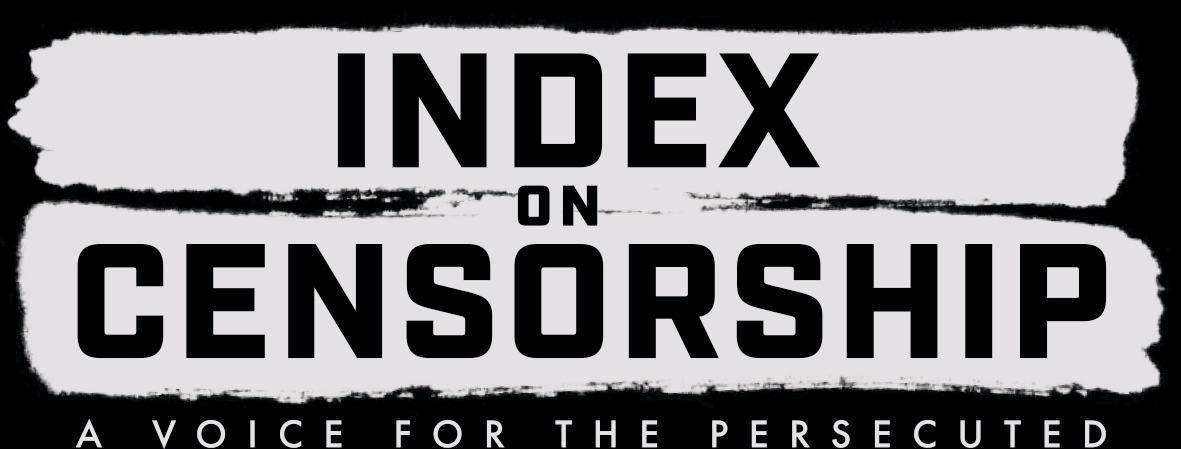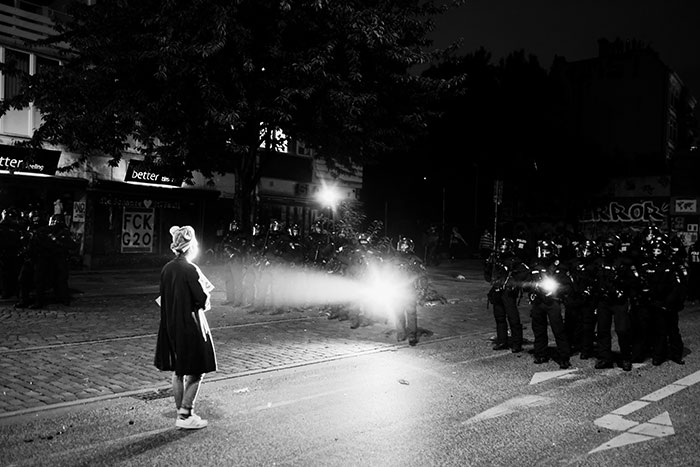6 Aug 2017 | Events
[vc_row][vc_column][vc_column_text]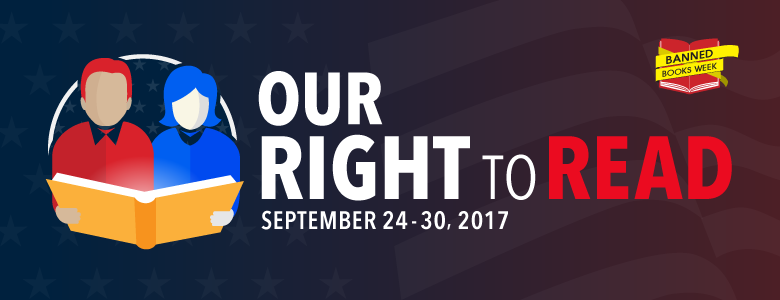
Banned Books Week 2017 is being celebrated with multiple ways to get involved.
[/vc_column_text][vc_custom_heading text=”22 September” font_container=”tag:h3|text_align:left” use_theme_fonts=”yes”][vc_column_text]
When: Friday 22 September, 5pm BST
Where: Archway Methodist Church Archway Close N19 3TD Map
Tickets: £5/£1 under 16s via ArchWay With Words
ArchWay With Words presents a thrilling event with two of Britain’s most exciting, prize-winning writers who tell stories about young people. Alex Wheatle talks about his trilogy of novels set in ‘Crongton’, a place rife with gang warfare and home to a cast of characters whose lives and loyalties are tested in gripping dramas. Patrice Lawrence talks about her dazzling debut ‘Orangeboy’, and the breathtaking follow up ‘Indigo Donut’, a story about tough choices and everyone’s need to belong.
This event is presented by Archway With Words.[/vc_column_text][vc_separator][vc_custom_heading text=”24 September” font_container=”tag:h3|text_align:left” use_theme_fonts=”yes”][vc_column_text]
When: Sunday 24 September 2017, 2-4pm BST
Where: Old Library, Pembroke College, Cambridge Map
Tickets: Free. Registration required via Eventbrite
What is the place of the satirist in our age of controversies? The irreverent cartoonist Martin Rowson, of The Guardian and Index on Censorship magazine, joins publisher Joanna Prior of Penguin Random House for what promises to be a coruscating conversation; feathers will no doubt be ruffled. This event is in association with Pembroke College as part of Banned Books Week and will be introduced by Index CEO Jodie Ginsberg. Full details[/vc_column_text][vc_row_inner equal_height=”yes”][vc_column_inner width=”1/3″][vc_single_image image=”89693″ img_size=”500×300″ alignment=”center”][vc_column_text]
Martin Rowson
[/vc_column_text][/vc_column_inner][vc_column_inner width=”1/3″][vc_single_image image=”95149″ img_size=”500×300″ alignment=”center”][vc_column_text]
Joanna Prior
[/vc_column_text][/vc_column_inner][vc_column_inner width=”1/3″][vc_single_image image=”80210″ img_size=”500×300″ alignment=”center”][vc_column_text]
Jodie Ginsberg
[/vc_column_text][/vc_column_inner][/vc_row_inner][vc_separator][/vc_column][/vc_row][vc_row][vc_column][vc_custom_heading text=”26 September” font_container=”tag:h3|text_align:left” use_theme_fonts=”yes”][vc_column_text]
When: Tuesday 26 September 5-6pm
Where: Online at GoToWebinar
Tickets: Free. Registration required
Over the past few years, the news has been replete with stories about how authors, thought-leaders, and others have become disinvited or pressured to withdraw from university speaking engagements because they don’t promote prevailing ideology. What are the consequences of disallowing diverse viewpoints on campus and what can speakers, faculty, and librarians do to support intellectual freedom in academia?
Join the American Library Association’s Office for Intellectual Freedom, SAGE Publishing and Index on Censorship for a webinar on speaker disinvitation during Banned Books Week. It will include perspectives from Mark Osler, a professor who was disinvited from a campus speaking engagement, Glenn Geher, a professor of psychology who helped to bring a controversial speaker to campus, and Judith C. Russell, a dean of libraries who addresses issues relating to controversial speakers, academic freedom and campus safety on campus.
The event will be chaired by Jemimah Steinfeld, deputy editor of Index on Censorship magazine.
Full details
This event is presented by SAGE Publications[/vc_column_text][vc_row_inner equal_height=”yes”][vc_column_inner width=”1/3″][vc_single_image image=”95734″ img_size=”213×127″ alignment=”center”][vc_column_text]
Mark Osler
[/vc_column_text][/vc_column_inner][vc_column_inner width=”1/3″][vc_single_image image=”95735″ img_size=”213×127″ alignment=”center”][vc_column_text]
Glenn Geher
[/vc_column_text][/vc_column_inner][vc_column_inner width=”1/3″][vc_single_image image=”95736″ img_size=”213×127″ alignment=”center”][vc_column_text]
Judith C. Russell
[/vc_column_text][/vc_column_inner][/vc_row_inner][vc_row_inner equal_height=”yes”][vc_column_inner width=”1/3″][vc_single_image image=”88892″ img_size=”213×127″ alignment=”center”][vc_column_text]
Jemimah Steinfeld
[/vc_column_text][/vc_column_inner][/vc_row_inner][vc_separator][vc_column_text]
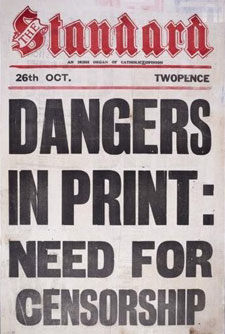
British Library
When: Tuesday 26 September 7:15-8:30pm
Where: Knowledge Centre British Library, 96 Euston Rd, Kings Cross, London NW1 2DB
Tickets: From £7 via British Library
Censorship. Whose morals and values does it seek to protect? Trace the blue pencil and its consequences through literary history, from Ulysses and Lolita to a book implicated in a murder case.
For some, such restrictions may seem sensible, while for others, they appear arbitrary at best, oppressive and dangerous at worst. The list of books suppressed in the English language features the sacred and profane, poetic and pornographic, famous and infamous. A history of the censorship of literary texts is also a history of the authorities that have attempted to prevent their circulation: sovereigns, politicians, judges, prison officers, slaveholders, school governors, librarians, teachers, parents, students, editors and publishers.
Katherine Inglis and Matthew Fellion, authors of a fascinating new book on suppressed literature, explore the methods and consequences of censorship and some of the most contentious and fascinating cases. Followed by a book signing. Full details
This event is presented by The British Library[/vc_column_text][vc_separator][/vc_column][/vc_row][vc_row][vc_column][vc_custom_heading text=”27 September” font_container=”tag:h3|text_align:left” use_theme_fonts=”yes”][vc_column_text]
When: Wednesday 27 September 2017, 6:30-8:15pm
Where: Free Word Centre 60 Farringdon Road London EC1R 3GA
Tickets: From £5 via Free Word Centre
Who are the modern-day censors? And what ingenious evasions – both modern and ancient – have writers and publishers used to protect our right to read? Join award-winning journalist David Aaronovitch in conversation with Irish author Claire Hennessy and publisher Lynn Gaspard, as they explore what happens when ideas are silenced. With readings by Moris Farhi and Bidisha. Full details[/vc_column_text][vc_row_inner][vc_column_inner width=”1/3″][vc_single_image image=”95061″ img_size=”200×200″ alignment=”center”][vc_column_text]
David Aaronovitch
[/vc_column_text][/vc_column_inner][vc_column_inner width=”1/3″][vc_single_image image=”95059″ img_size=”200×200″ alignment=”center”][vc_column_text]
Lynn Gaspard
[/vc_column_text][/vc_column_inner][vc_column_inner width=”1/3″][vc_single_image image=”95058″ img_size=”200×200″ alignment=”center”][vc_column_text]
Claire Hennessy
[/vc_column_text][/vc_column_inner][/vc_row_inner][vc_row_inner][vc_column_inner width=”1/3″][vc_single_image image=”95062″ img_size=”200×200″ alignment=”center”][vc_column_text]
Moris Farhi
[/vc_column_text][/vc_column_inner][vc_column_inner width=”1/3″][vc_single_image image=”95425″ img_size=”200×200″ alignment=”center”][vc_column_text]
Bidisha
[/vc_column_text][/vc_column_inner][vc_column_inner width=”1/3″][/vc_column_inner][/vc_row_inner][vc_separator][vc_column_text]
When: Wednesday 27 September, 7-8:30pm
Where: The Book Hive, 53 London St, Norwich NR2 1HL
Tickets: Free. More details.
Join Index on Censorship magazine Deputy Editor Jemimah Steinfeld in conversation with Matthew Fellion and Katherine Inglis, authors of the new book Censored: A Literary History of Subversion and Control.
In twenty-five chapters focusing on a wide range of texts, including the Bible, slave narratives, modernist classics, comic books, and Chicana/o literature, Fellion and Inglis chart the forces that have driven censorship for over six hundred years, from fears of civil unrest and corruptible youth to the oppression of various groups – religious and political dissidents, same-sex lovers, the working class, immigrants, women, racialized people, and those who have been incarcerated or enslaved. The authors also consider the weight of speech, and when restraints might be justified.[/vc_column_text][vc_row_inner][vc_column_inner width=”1/3″][vc_single_image image=”95334″ img_size=”full” alignment=”center”][vc_column_text]The Book Hive is Norwich’s only truly independent new bookshop[/vc_column_text][/vc_column_inner][vc_column_inner width=”1/3″][vc_single_image image=”95338″ img_size=”full” alignment=”center”][vc_column_text]
Censored: A Literary History of Subversion and Control by Matthew Fellion and Katherine Inglis
[/vc_column_text][/vc_column_inner][vc_column_inner width=”1/3″][vc_single_image image=”88892″ img_size=”full” alignment=”center”][vc_column_text]Jemimah Steinfeld, deputy editor Index on Censorship magazine[/vc_column_text][/vc_column_inner][/vc_row_inner][/vc_column][/vc_row][vc_row][vc_column][vc_custom_heading text=”28 September” font_container=”tag:h3|text_align:left” use_theme_fonts=”yes”][vc_column_text]
When: Thursday 28 September 8pm
Where: St Mary’s Cathedral, Bridge St, Limerick, V94 E068, Ireland Map
Tickets: From €8 via Eventbrite
The event is in conjunction with the Kemmy Business School and is a six-part series of public lectures to be delivered by internationally renowned commentators and thought leaders in their field. The third lecture in the series with Jodie Ginsberg will take place on 28 September. Ginsberg will speak about how censorship stifles debate and undermines the tenets of free and democratic societies. Full details[/vc_column_text][vc_row_inner][vc_column_inner width=”1/3″][vc_single_image image=”80210″ img_size=”full” alignment=”center”][vc_column_text]
Jodie Ginsberg
[/vc_column_text][/vc_column_inner][vc_column_inner width=”1/3″][vc_single_image image=”95175″ img_size=”full” alignment=”center”][/vc_column_inner][vc_column_inner width=”1/3″][/vc_column_inner][/vc_row_inner][vc_separator][vc_column_text]
When: Thursday 28 September, 7:00-8:30pm
Where: Knowledge Centre British Library, 96 Euston Rd, Kings Cross, London NW1 2DB
Tickets: From £7 via British Library
“In 1989 the death penalty was re-introduced in Britain. Not for terrorism. Not for murder. But for writing a book.” Nearly 20 years after Salman Rushdie was forced into hiding following the publication of The Satanic Verses, members of the Salman Rushdie Campaign Group re-unite to talk about their fight for freedom of expression. With archive recordings of Salman Rushdie reading from The Satanic Verses. With Lisa Appignanesi, Melvyn Bragg, Frances D’Souza, Sara Khan and Caroline Michel. Full details
Presented by The British Library in partnership with The Royal Society of Literature, Free Word and Islington Library and Heritage Services[/vc_column_text][vc_separator][/vc_column][/vc_row][vc_row][vc_column][vc_custom_heading text=”30 September” font_container=”tag:h3|text_align:left” use_theme_fonts=”yes”][vc_column_text]
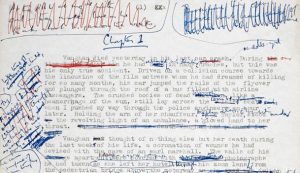
British Library
When: Saturday 30 September, 2:30-6pm
Where: Regent Street Cinema 309 Regent Street London W1B 2UW
Tickets: From £16 via British Library
Revisit the shock of symphorophilia with Will Self and Chris Beckett, editor of a new edition of Crash. Their discussion is followed by a rare chance to see the uncut version of David Cronenberg’s 1996 film adaptation on the big screen. Cronenberg’s film of Crash (1996), which Ballard greatly admired, was awarded a Special Jury Prize at its premiere at the Cannes Film Festival. The film introduced a second generation to Ballard’s unsettling vision, and sparked a censorship controversy that led to the film being banned by Westminster City Council. The film will be introduced by its producer, Jeremy Thomas. Full details
This event is presented by The British Library[/vc_column_text][/vc_column][/vc_row]
4 Aug 2017 | Bahrain, Bahrain Statements, Campaigns -- Featured, Statements
[vc_row][vc_column][vc_column_text]
* Yusuf Al-Jamri made a plea to King Hamad about the torture he suffered at the hands of the National Security Agency on Thursday 3 August
* Immediately afterwards, the NSA summoned him for interrogations
* The NSA interrogated Yusuf three times this week, tortured him, and threatened him with rape
* The NSA is responsible for the torture and sexual assault of detainees including women’s rights defender Ebtisam Al-Sayegh
* The NSA was given arrest powers in January 2017. Its president is Sheikh Talal Al Khalifa, a Bahraini royal and Sandhurst graduate
The National Security Agency has summoned online activist Yusuf Al-Jamri for interrogation after he published a video message on Thursday 3 August to King Hamad of Bahrain accusing them of torturing him. The NSA is the subject of many recent torture allegations and is headed by Sheikh Talal Al Khalifa, a Bahraini royal and Sandhurst graduate.
Al-Jamri states in his message to King Hamad that the National Security Agency threatened him with rape and reprisals against his family, and insulted him and his faith. He says to the King, “Your Majesty, I was tortured. …The interrogator said that he acts with the highest authority after your Majesty’s, and nothing can stop him.”
Since publishing his message to the King at 6.26 PM (Bahrain time) on 3 August, Al-Jamri was immediately summoned to the NSA again.
The NSA repeatedly called Al-Jamri’s wife urging him to present himself at the Muharraq Security Complex. Al-Jamri shared images of the many calls on his Twitter.
Al-Jamri was summoned to for interrogation at the Muharraq Security Complex by the National Security Agency on 1st and 2nd August. The summons may have been because of his activism on social media. On 20 July, he put out a series of tweets publicising the UK’s criticisms of Bahrain’s human rights situation in the Foreign & Commonwealth Office’s Human Rights and Democracy report.
“Bahrain’s government routinely resorts to harassment to silence human rights defenders. The international community — especially the UK — must demand that Bahrain treats its citizens with respect and end threats of reprisals and outright torture,” Sean Gallagher, Index on Censorship, said.
Abuses by the National Security Agency
Human rights defender Ebtisam Al-Sayegh alleges she was tortured and sexually abused by NSA agents in May 2017. Amnesty International reported on her torture: “When she arrived [at Muharraq], she was immediately blindfolded, and in the subsequent hours, she was sexually assaulted, beaten all over her body, kicked in the stomach and kept standing for most of the seven hours she was being interrogated.”
Ebtisam Al-Sayegh told Amnesty: “The men told me ‘no one can protect you’. They took away my humanity, I was weak prey to them.”
On 3 July, Al-Sayegh was re-arrested. The family believes the NSA was responsible for the arrest. She remains in detention, and has been charged under the anti-terrorism law. She is at high risk of ill-treatment, and her health deteriorated significantly during her detention.
National Security Agency: Further Information
In January, the King of Bahrain empowered the NSA with law enforcement powers, reversing one of the only Bahrain Independent Commission of Inquiry (BICI) reforms his government had implemented.
Sheikh Talal bin Mohammad Al Khalifa was appointed Director of the NSA in August 2016. Sheikh Talal, a graduate of the Royal Military Academy Sandhurst, is the son of a former Minister of Interior and brother to Sheikh Fawaz, the ambassador in London.
The NSA has offices in the Muharraq Security Complex. BIRD has recorded a growing number of torture allegations and arbitrary detentions by the NSA since April 2017.
Systematic torture by the NSA in 2011 was recorded by the BICI and led to the stripping of their powers. In April 2011, businessman Karim Al-Fakhrawi was tortured to death in NSA custody.[/vc_column_text][/vc_column][/vc_row][vc_row][vc_column][vc_basic_grid post_type=”post” max_items=”12″ style=”load-more” items_per_page=”4″ element_width=”6″ grid_id=”vc_gid:1501848639305-96eb2c27-f595-4″ taxonomies=”716″][/vc_column][/vc_row]
4 Aug 2017 | Germany, Mapping Media Freedom, Media Freedom, media freedom featured, News and features
[vc_row][vc_column][vc_column_text]
Journalists covering the G20 Summit in Hamburg in July were subject to assaults, intimidation and some lost their accreditation, according to verified incidents documented by Index on Censorship’s project Mapping Media Freedom.
Several journalists reported that they were assaulted by police while covering protests against the meeting, which included leaders of the 19 largest industrial nations in the world plus the EU. Leading up to the summit, freelance journalist Martin Eimermacher was assaulted while police were clearing a protest camp in Hamburg on 2 July, according to Netzpolitik and Jetzt.
Police had demolished protesters’ tents when Eimermacher tried to leave the area, telling police he felt unwell. He said that officers pushed him and several other journalists to the centre of a field. He showed his press card, which was slapped out of his hand by a police officer who then pepper sprayed him.
“In my opinion the most dangerous thing is that this sets an example within Germany and beyond, that such treatment of journalists is acceptable,” Mapping Media Freedom Germany correspondent Pascale Müller said. “There seemed to have been, on an individual level of police officers, a severe lack of understanding of the rights of the press and their role as an observer and part of a healthy democracy.”
On 7 July, ITN News journalist Flo Smith, his producer and cameraperson were all pepper sprayed by police. Photojournalist Henry Langston of Vice UK was struck by a police water cannon. RT UK published a video in which police assaulted and injured photojournalist Zino Peterk, who later had to go to the hospital for his injuries.
On 8 July, Spiegel Online photographer Chris Grodotzki said police assaulted him with pepper spray while he was covering protests in Schulterblatt. Taz reporter Martin Kaul sustained minor injuries when he was hit by protesters while live-streaming the demonstration, according to Deutschlandfunk. Müller noted that some attacks by protesters targeted journalists they perceived as right-wing, “but in some cases it seems that people were already so ‘high on violence’ that they hurt journalists regardless of their political affiliation.”[/vc_column_text][vc_separator][vc_custom_heading text=”Media freedom is under threat worldwide. Journalists are threatened, jailed and even killed simply for doing their job.” font_container=”tag:h3|text_align:left” use_theme_fonts=”yes” link=”url:https%3A%2F%2Fwww.indexoncensorship.org%2Fcampaigns%2Fpress-regulation%2F|||”][vc_row_inner][vc_column_inner width=”1/2″][vc_column_text]
Index on Censorship monitors press freedom in Germany and 41 other European area nations.
As of 4/8/2017, there were 101 verified incidents associated with Germany in the Mapping Media Freedom database.
[/vc_column_text][/vc_column_inner][vc_column_inner width=”1/2″][vc_column_text]Index on Censorship campaigns against laws that stifle journalists’ work. We also publish an award-winning magazine featuring work by and about censored journalists. Support our work today.[/vc_column_text][/vc_column_inner][/vc_row_inner][vc_separator][vc_column_text]“Many journalists who covered the protest directly and that I have spoken to were emotionally and physically affected even a week after” Müller said. The press freedom violations were widely condemned, but according to Müller “The most shocking revelation came after the protests, when Sueddeutsche Zeitung revealed that the BKA had monitored selected journalists during their summit coverage over the past 10 years. This was very disturbing and lead to a certain level of insecurity within the profession. “
Other journalists reported the use of intimidation tactics by police. In the Schanze neighbourhood, Frank Schneider, a reporter for Bild, tweeted that police told journalists to “leave or you’ll go to the hospital”. F-Mag journalist Wiebke Harms reported on Twitter that police in Schanze told her: “Your press card is worth nothing.” Freelance journalist Reuben Neugebauer was told “now press freedom is over”.
Thirty-two journalists had their accreditation revoked by federal police on 7 and 8 July. German government spokesperson Steffen Seibert cited ‘security concerns’ as the rationale for the loss of access to the summit.
Journalists who lost accreditation include the photographer Björn Kietzmann, Rafael Heygster (Weser Kurier), photographer for Junge Welt, Willi Effenberger Alfred Denzinger (Beobachter News), photographer Chris Grodotzki (Spiegel Online), Adil Yigit (Avrupa Postasi), editor Elsa Koester (Neues Deutschland) and freelance photographer Po Ming Cheung.
When trying to enter a press area, Grodotzki and Yigit were told by police that their accreditation was no longer valid. Photographers Björn Kietzmann for Weser Kurier and Rafael Heygster were also not allowed to enter the press area.
Müller does not think that this treatment will intimidate journalists into stepping back from events like this in the future. “Quite the opposite, I think that many journalists and their outlets are quite resilient against such types of violence or blocked access. G20 brought press freedom issues to the forefront in Germany and made journalists even more aware of their role as critical observers, even in the middle of such violent tension and intimidation attempts.”[/vc_column_text][/vc_column][/vc_row][vc_row][vc_column][vc_basic_grid post_type=”post” max_items=”12″ style=”load-more” items_per_page=”4″ element_width=”6″ grid_id=”vc_gid:1501833910854-5bf94268-20d1-5″ taxonomies=”77″][/vc_column][/vc_row]
3 Aug 2017 | Campaigns, Campaigns -- Featured, Russia, Statements, Uzbekistan
[vc_row][vc_column][vc_column_text]8 August: Index on Censorship welcomes a ruling by a Russian court temporarily halting the deportation of independent journalist Khudoberdi Nurmatov, better known by his pen name Ali Feruz. The decision follows a European Court of Human Rights order to delay the deportation until it can rule on the journalist’s appeal.
Index calls on the Russian authorities to allow accept Nurmatov’s asylum application and ensure he is treated safely.[/vc_column_text][vc_single_image image=”94957″ img_size=”full” add_caption=”yes” alignment=”center”][vc_column_text]Journalist Khudoberdi Nurmatov, who works for independent Russian newspaper Novaya Gazeta, is set to be deported back to Uzbekistan, where it is feared he will be tortured.
“Deportation to Uzbekistan puts his life at serious risk. If sent back Nurmatov faces a long prison sentence under cruel conditions, including torture. We call on Russia to stop the deportation and accept Nurmatov’s asylum application,” Hannah Machlin, manager for Index on Censorship’s Mapping Media Freedom project, said.
A Moscow court ruled on 1 August 2017 that Nurmatov (also known as Ali Feruz) violated immigration laws. He is currently being held in a deportation centre in Moscow where he faces immediate expulsion from the country. In May 2016 and in February 2017, Russia refused to grant the journalist temporary asylum.
In 2008, Novaya Gazeta reported that Nurmatov was abducted by Uzbek security forces who demanded he provide information on his contacts. He was subsequently beaten and threatened. He later applied for asylum in Kyrgyzstan and Kazakhstan, but decided to flee to Russia in 2011, where he feared extradition. Because of his refusal to work for Uzbek security forces, friends and supporters are concerned that he could be abducted or tortured.
According to his lawyer Daniil Khaimovich, on 2 August Feruz attempted to commit suicide in a hallway at the courthouse. The journalist then told his lawyer: “I would rather die than return to Uzbekistan.”
Nurmatov has covered a wide range of topics at the paper including on abuse of power, LGBT issues and conditions of central asian immigrants in Russia.
“Ali is an extremely valuable asset as he’s been covering the migrant community in Russia that media normally can’t report on easily. He is committed to his work and shows real compassion to the problems he reports on. We can’t imagine losing him,” Anna Baydakova, a politics reporter for the Novaya Gazeta newspaper, told Index on Censorship. [/vc_column_text][/vc_column][/vc_row][vc_row][vc_column][vc_basic_grid post_type=”post” max_items=”12″ style=”load-more” items_per_page=”4″ element_width=”6″ grid_id=”vc_gid:1502188585770-4b2b310d-e3a3-9″ taxonomies=”7349, 15″][/vc_column][/vc_row][vc_row][vc_column][/vc_column][/vc_row]
